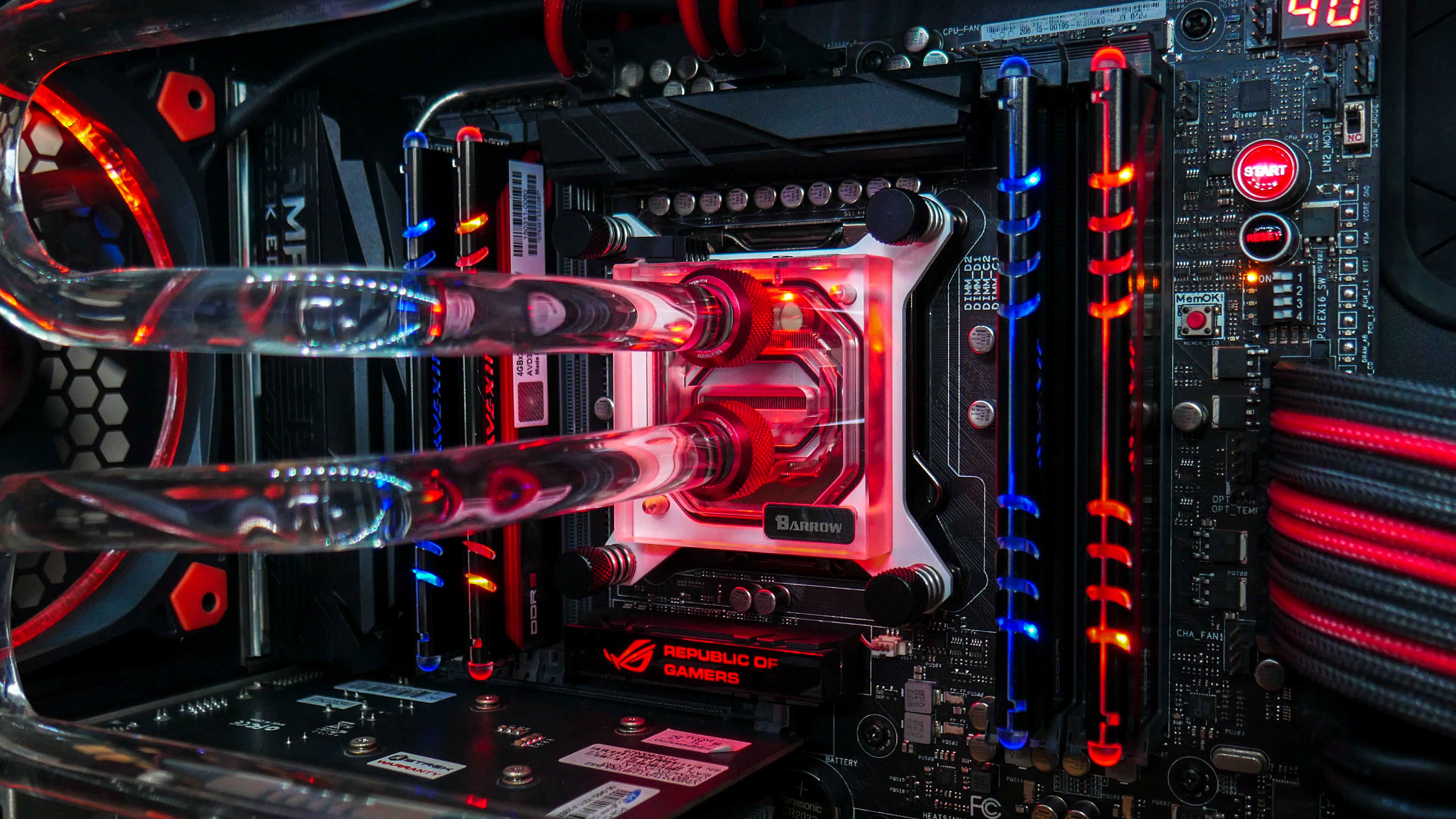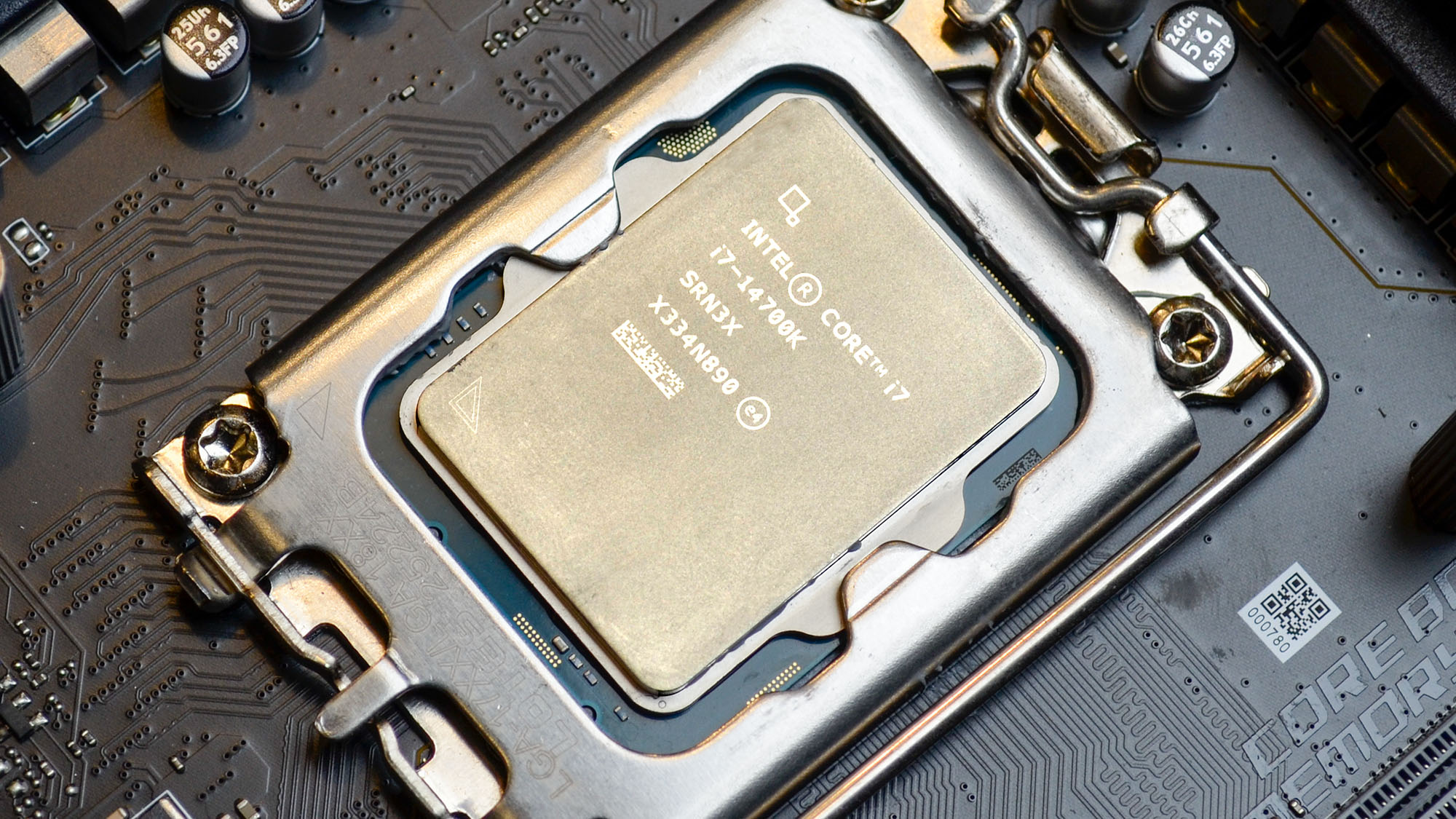- A Firefox engineer has flagged up an apparent issue with Intel Raptor Lake
- These CPUs are reportedly crashing more in the summer heat in Europe
- There’s a greater prevalence of crashes in places where temperatures have spiked due to heatwaves, and the 14700K CPU is suffering in particular
Intel‘s Raptor Lake (and Raptor Lake Refresh) 13th and 14th-gen processors are struggling with the heatwave in Europe, which is seemingly causing these CPUs to crash more frequently with a popular web browser.
Tom’s Hardware reports that Gabriele Svelto, a senior staff engineer on Mozilla’s Firefox browser, flagged up the issue on Mastodon, observing that: “If you have an Intel Raptor Lake system and you’re in the northern hemisphere, chances are that your machine is crashing more often because of the summer heat.”
To clarify, these are browser crashes – as opposed to full system lock-ups – and Svelto adds that he’s obtained this info thanks to Firefox crash reports coming from Raptor Lake PCs, which are tied to specific countries in the EU. There’s a greater prevalence of crashes in places where temperatures have markedly spiked during the summer.
The issue is so bad that we’re told that the level of crashes has become overwhelming, meaning Mozilla had to take action to disable the bot filing these reports.
Svelto notes: “Raptor Lake systems have known timing/voltage issues that get worse with temperature. Things are so bad at this time that we had to disable a bot that was filing crash reports automatically because it was almost only finding crashes from people with affected systems.”
Another Mastodon user makes the assumption that this is related to the known degradation issues that hit 13th and 14th-gen Intel CPUs, with the heat exacerbating the problem. Svelto replies to agree that yes, this is true, while adding a caveat, saying: “Yes, though some of these bugs are very repeatable and predictable which is puzzling. They might be timing-related or even genuine consistent CPU bugs (we’ve seen a fair bit of those too).”
As the Mastodon thread progresses, the engineer suggests that Intel’s most recent microcode update, codenamed ‘0x12F’ for Raptor Lake (and Raptor Lake Refresh), actually made things worse, at least in terms of what Firefox is seeing here.
Svelto notes: “In particular microcode 0x12C had reduced the incidence of a number of bugs, but they’ve come back in full force when Intel released version 0x12F.”
The 0x12F patch was pushed out in May 2025, a good while after the previous updates, as a fix for a more niche scenario where issues occurred with PCs that were left on continuously (for days at a time, running light workloads). Svelto is therefore suggesting that while this patch improved matters for those outlying scenarios, it made things worse for other folks.
According to the engineer, these crashing issues with Raptor Lake chips are happening the most with Intel Core i7-14700K models.
Analysis: Hot hot heat

Clearly, we need to be careful around pinning the blame here, though. Seemingly, something has gone substantially awry if Mozilla needed to disable a system because it was becoming overloaded with crash reports.
This certainly suggests Firefox is pointing to a chip-related problem – even if the cause could be (theoretically) partly down to buggy behavior with the browser, it’s still only manifesting with certain Intel silicon (to an apparently profound level, correlating with hotter locations in Europe).
Cooling may play a role here, too, of course, in terms of the CPU coolers being used. The reason the 14700K may be showing up a lot more in these crashes could be because it’s a more mainstream speedy chip, possibly coupled with a less effective cooling solution as a result. Whereas those running the even faster top dog 14900K (or indeed 13900K) have probably invested in an expensive cooler to go with the processor, and thus it may be less prone to overheating issues as temperatures climb, so there aren’t as many crashes recorded. There won’t be nearly as many 14900K chips out there, either, due to their more pricey nature.
What will be interesting to see is if other software developers are noticing a similar kind of pattern with their products crashing (browsers, or otherwise) – and now this report has been aired, others may have cause to investigate crash logs further, perhaps.
Of course, another factor to watch will be the performance of Raptor Lake CPUs if temperatures continue to rise (over the summer in Europe, or elsewhere – or indeed more broadly as the next couple of years roll on).
Even before this, my worry has always been what underlying degradation the instability issues may have caused with 13th and 14th-gen processors. As we know, these chips were running in PCs for some time in a problematic state, with the microcode fixes applied being preventative in nature – not a cure, meaning they don’t reverse any damage that was already done. So, there could be undetectable deterioration under the hood of the chip that only manifests much later in its lifespan – a process possibly sped up by the processor running too hot, perhaps?
Now, the good news – as those affected no doubt recall – is that Intel did up the warranty coverage for these CPUs to five years. However, as I’ve pointed out in the past, what if in the sixth year, your Raptor Lake CPU starts going down the plughole in terms of recurring instability issues? You’re out of luck in that case, which doesn’t seem very fair – it’s not unreasonable to expect a processor, the engine of a PC, to last longer than half a decade.
Of course, we can’t go jumping to any negative conclusions yet, but this situation is certainly worth monitoring.






